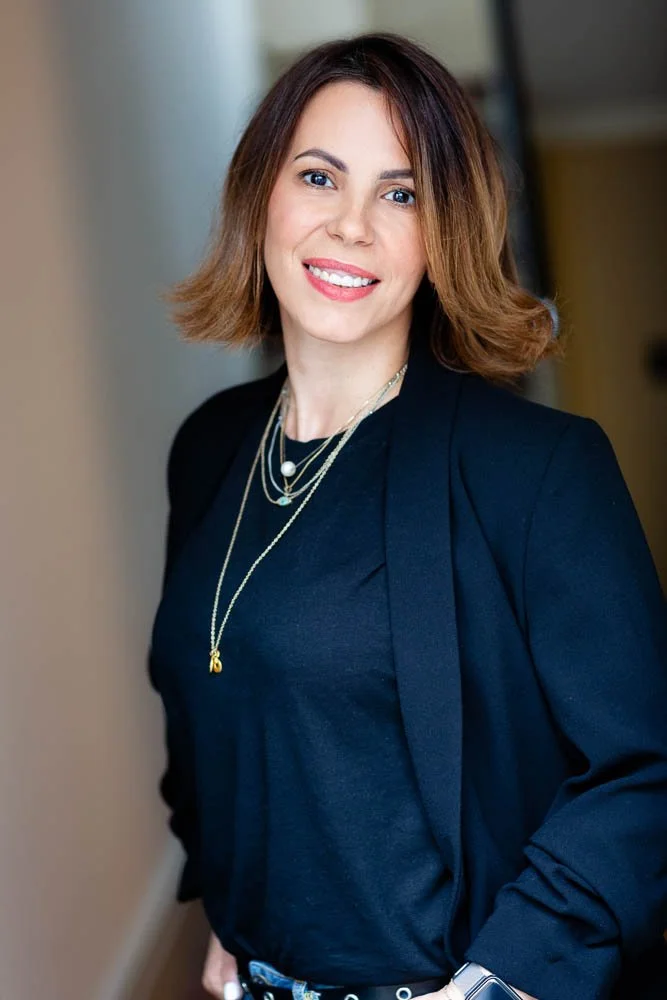Hi, I’m christina lakka
My journey as a professional Pilates practitioner started with an injury in my lower back. I was introduced to Pilates at this stage as a rehabilitation method and in a period of my life where I was looking to change my career path.
I was fascinated how Pilates helped me to get back to my old self by strengthening weak muscles and correcting habitual physical patterns, helping the body to avoid any recurrence of pain.
I completed my training with Alan Herdman who is one of the world’s foremost experts on Pilates. My second leader teacher is Madeline Black an international leader teacher in Pilates and movement education.
My native curiosity about the body and the connection of body and mind led me to study Applied movement neurology, Body Psychotherapy with Babette Rothschild, I am a certified Mindfulness teacher and a Feldenkrais practitioner.
The last 14 years I have worked on a one on one basis, helping my clients to educate them about their body inside and outside. EMBODIED MIND HUB is an integrated method an amalgamation of learning through my personal and professional journey.
Both Pilates and Feldenkrais methods are great ways to improve fitness and body awareness. Pilates is focused on muscle toning and balance, whereas Feldenkrais is focused on relearning new, healthier ways of movement. Pilates exercises involve sophisticated machinery or mat props. Feldenkrais comes in two shapes: hands-on bodywork and exercises on the floor.
We work together to develop the proprioceptive sense, leading to a greater awareness of the body, how the different parts of it feel and move, thus avoiding accidents and potential injury.
For most people, there is no better way to address pain reduction and self-improvement goals than the neuromuscular reorganization possible through Functional Integration lessons (hands-on, one-to-one Feldenkrais)or through Applied Movement Neurology principles. Whether commencing a series of lessons, or just getting to know the Embodied Mind Hub on a one-to-one basis before joining the weekly classes, FI lessons are an excellent way to begin learning your own body.
My Approach
I am passionate about translating my knowledge through movement.
My aspiration is to invite people to get back into their bodies, to gain body awareness and connect with their mind.
Body and mind are equally important.
Your body is your vehicle for life, this physical vehicle must last for an entire life. Imagine you had only one car, and you knew it had to last you in a lifetime.
Would you treat your car differently? Would you take more care in maintaining it? Perhaps yes, perhaps no..
Of course the analogy only goes so far, as you can’t buy yourself a new body, but you can tune it up, maintain it, make it stronger and get it performing more efficiently and get yourself out of pain.
Your mind is mainly your thoughts...
“What flows through your mind sculpts your brain. Thus you can use your mind to change your brain for the better - which will benefit your whole being” — Dr.Rick Hanson, Neuropsychologist and Author
My vision is to help people by giving them tools to achieve a healthy and balanced life according to their needs and their life circumstances.
Embodied Mind Hub is an Integrated Method - Pilates, Feldenkrais and AMN methods are all great resources to improve health and facilitate body awareness.
Pilates is focused on muscle toning and balance, whereas Feldenkrais is focused on relearning new, healthier ways of movement. Pilates exercises involve sophisticated machinery or mat props.
Feldenkrais comes in two shapes: hands-on bodywork and exercises on the floor.
I practice an extension of the Feldenkrais method using the principles of Feldenkrais Method and Applied Movement Neurology.
AMN looks at the body in motion as the embodiment of all the systems of the body – the integration of the nervous system, the brain, the organs, emotions and special senses. Applied Movement Neurology is an exercise system that allows the practitioner to gain a detailed understanding of how to assess for imbalances in muscle strength, range of motion, coordination , balance and pain modulation.

